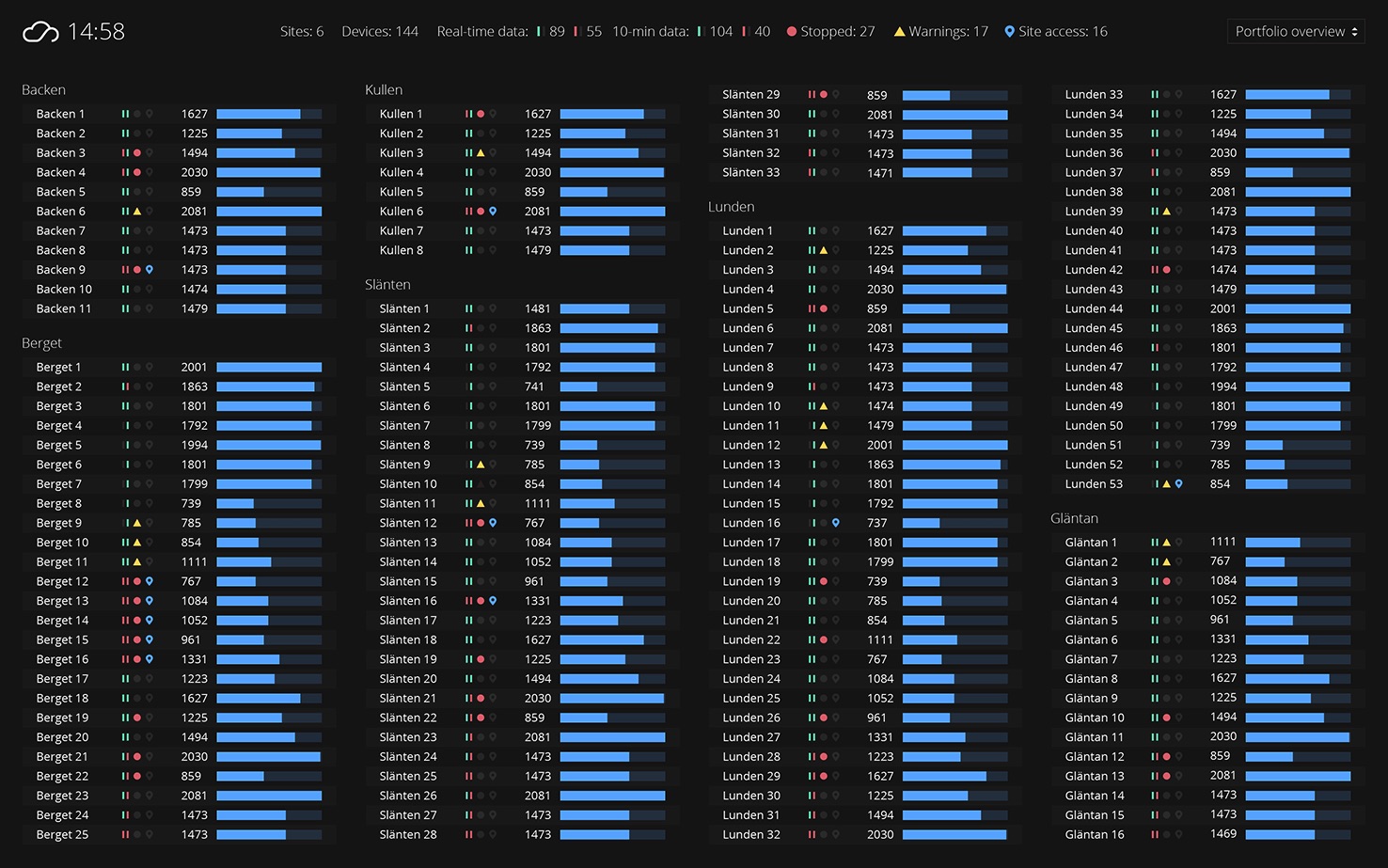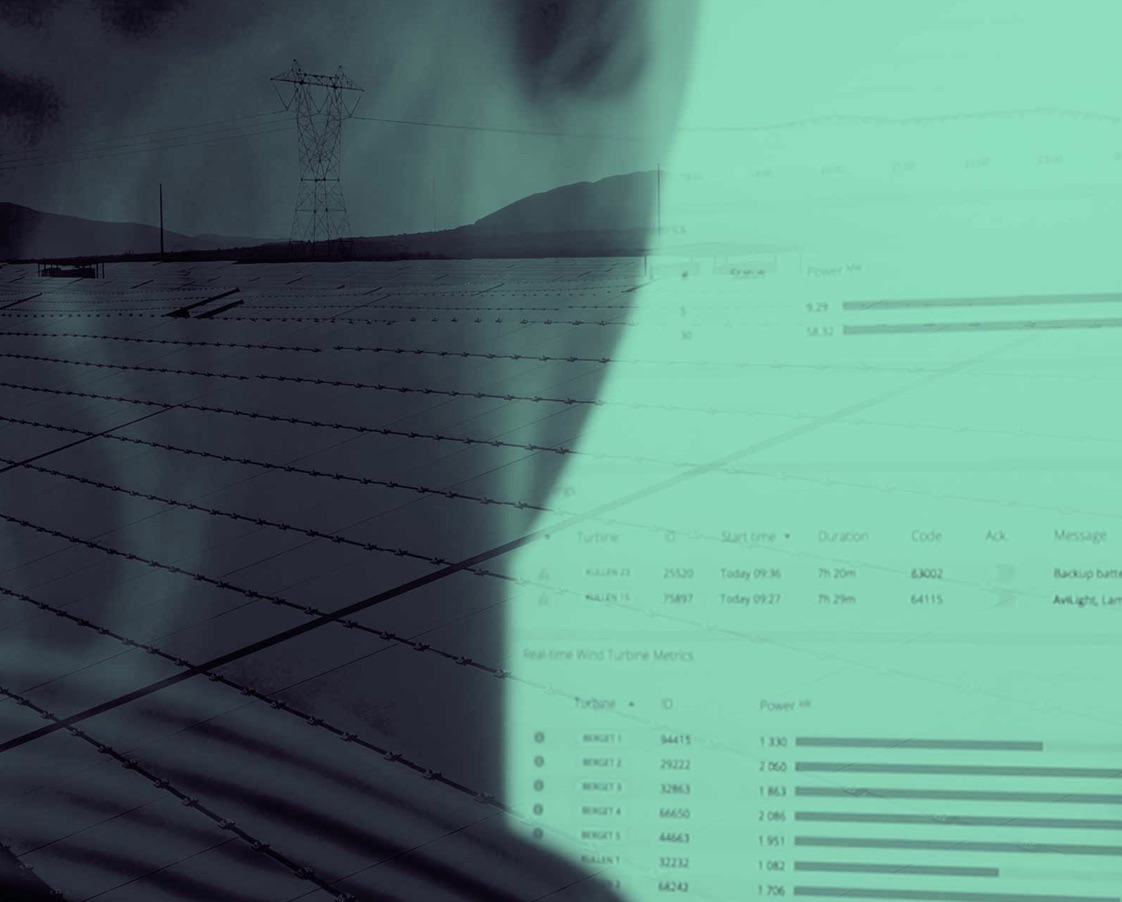Digital Reality: It's time for boardrooms to get a grip on digitalization
Despite being responsible for many of the amazing technological developments in the renewables industry, including sophisticated performance monitoring and asset management, the benefits of digitalization are still not being fully recognized by top level executives, from asset managers to investors. Data managers are left with no choice but to push for data-led approaches from the bottom up.
 This is a mistake, and a big one.
This is a mistake, and a big one.
Digitalization plays a crucial role in today's renewables market - senior execs who ignore it, or treat it as a "nice to have", are missing out on an enormous opportunity to increase their revenue and decrease their costs. They're throwing away the opportunity for maximized asset productivity and availability. Ironically, many companies remain unaware of the wider financial and operational benefits that digitalization can bring, simply because they lack the data management abilities needed to effectively measure it.
Never before have portfolio owners been able to gather data with such speed, quality, and scale. The benefits are obvious for all who care to look. Identifying marginal gains, accurate forecasting of future issues, and recognition of good investment opportunities, are some valuable outcomes that enable renewable energy portfolio owners to better analyzeand act on data.
While you can find a number of portfolio owners who have made asset management and monitoring software choices that ultimately led them down a "data dead-end", this doesn't mean that boardrooms should be hesitant about adopting a data-led approach.
Software developers have already begun creating versatile solutions that de-risk the investment for boardrooms, by creating technology and OEM-agnostic data hubs and marketplace-style app stores. This enables collaboration between software developers, portfolio owners, and asset managers - to not only ensure the highest standards of data management, but accelerate the pace of software innovation.
Sophisticated, investor-backed portfolio owners in the North American renewables sector already recognize the value that data-led approaches can bring. Obtaining data from technologically and geographically diverse sources, optimizing existing assets, and avoiding financial losses caused by lower asset availability, have made digitalization absolutely essential to the competitiveness of renewable energy portfolio owners.
Boardrooms need to get "on board"
 The first step to realizing an opportunity is recognizing that there is one - renewable energy asset owner and investor boardrooms need to wake up to new data opportunities. Unless they stop seeing data-driven value as a "nice to have", they face the very real consequence of productivity and financial losses.
The first step to realizing an opportunity is recognizing that there is one - renewable energy asset owner and investor boardrooms need to wake up to new data opportunities. Unless they stop seeing data-driven value as a "nice to have", they face the very real consequence of productivity and financial losses.
At a recent Forum event, data managers from almost 100 global renewable energy companies agreed that, in today's market, as new technology continues to develop and outdate current practices (and without subsidies or full-service maintenance warranties), executives need to support and update data management strategies to keep up.
However, with over 40 percent of data managers believing that industry executives have only a partial understanding of their role, and 36 percent stating that their Board either allocates no financial value to their work or fails to give it any serious oversight, many renewable energy portfolios remain unable to effectively gather the data required to fully optimize their assets.
While data managers understand the opportunities digitalization can bring, they still need a top-down implementation of digital approaches. Boardrooms must follow the example of other sophisticated renewable energy portfolio owners in North America that have implemented a fully digitized approach, to create wide-ranging transparency on asset performance, and accountability amongst third party asset managers.
Solving data dead-ends
Some businesses that chose to invest early in digital asset management approaches have been burned, which explains much of the current reticence among senior teams.
Data dead-ends that have been encountered (software provider insolvency, single technology support, reliance on bespoke, in-house systems) have undoubtedly slowed the pace of software innovation in the renewable energy industry. Fortunately, the creation of marketplace-style app stores and cloud computing data hubs shows that these obstacles are being overcome by software developers.

Portfolio owners need to be able to continuously evolve and collaborate with software developers and other industry players in order to expand and diversify their portfolio with new asset or Original Equipment Manufacturer (OEM) technologies. If they fail to do so, they will limit future growth opportunities and reduce their competitiveness.
This can be easily avoided by selecting a software platform that remains technology- and OEM-agnostic, allowing for flexibility when developing or acquiring new assets. Cloud platforms that act as "data hubs", with the ability to gather data from all sources irrespective of OEM technology or asset type, already exist, and can provide portfolio owners and asset managers with opportunities to innovate around the performance monitoring process.
In addition, "app stores" can accelerate the pace of software innovation by enabling portfolio owners to collaborate with multiple renewable energy software providers in the development of highly sophisticated applications. When integrated with cloud software, portfolio owners can choose from a greater range of software applications, allowing them to tailor their performance monitoring dashboards to their specific needs.
Boardrooms and top-level executives must begin to develop the same understanding of digitalization and its benefits as their data managers. An investment in asset management and monitoring software - providing it is in a versatile and "future-proof" platform - does not carry the same level of risk that it may once have. More importantly, it is no longer a "nice-to-have", but a critical part of portfolio management that is fundamental to profitable operation.
Jonas Corné is CEO of Greenbyte, a developer and enabler of smart data software to drive productivity in renewables.
Greenbyte | www.greenbyte.com
Author: Jonas Corné








